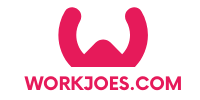Technical assessment is a tool that allows you to evaluate a candidate’s technical skills and knowledge in a structured and objective manner. Employers use this tool while hiring technical talent,
These tools can take many forms, from coding challenges and multiple-choice tests to hands-on projects and simulated work environments. The goal is to provide a standardized way of assessing candidates’ abilities.
It can help you make more informed hiring decisions and reduce the risk of hiring someone who doesn’t have the necessary skills for the job.
While technical assessment tools can be a valuable part of the hiring process, it’s important to use them in conjunction with other evaluation methods, such as interviews and reference checks.
By taking a holistic approach to candidate assessment, you can ensure that you are hiring the right person for the job and setting them up for success in your organization.
What is a Technical Assessment Tool?
A technical assessment tool is a type of software that is used to evaluate the technical knowledge and skills of a candidate or employee. It is commonly used in the hiring process to assess the technical proficiency of candidates applying for technical roles such as software engineers, data analysts, or IT professionals.
There are many leading Technical assessment tools providers like WeCP, HackerRank, Codility, Mettl, eSkill, HackerEarth, CodeSignal, TestGorilla, DevSkiller, Coderbyte, CoderPad, Criteria Corporation, Mocha Technologies Inc., Bryq, The McQuaig Institute.
What is a Technical Assessment?
A technical assessment is a process of evaluating a candidate’s technical skills and knowledge. It involves testing the candidate’s ability to solve problems, write code, analyze data, or perform other technical tasks related to the job. A technical assessment can be conducted in various forms such as written tests, coding challenges, or practical exercises.
Features of a Technical Assessment Tool
A technical assessment tool is a software application that is designed to automate the technical assessment process. It provides a platform for creating and administering technical assessments, grading the results, and generating reports.
A technical assessment tool can be customized to meet the specific needs of an organization and can be integrated with other HR software applications.
Some common features of a technical assessment tool include:
Multiple question types:
A technical assessment tool should provide various question types such as multiple-choice, fill-in-the-blank, or coding challenges to ensure a comprehensive evaluation of the candidate’s technical skills.
Automated grading:
A technical assessment tool should automatically grade the candidate’s responses and provide immediate feedback to the candidate.
Customizable assessments:
A technical assessment tool should allow organizations to create customized assessments that are tailored to their specific needs.
Integration with HR software:
A technical assessment tool should be able to integrate with other HR software applications such as applicant tracking systems or learning management systems.
Types of Technical Assessment Tools
When it comes to technical assessment tools, there are several types that you can use. Each type has its own unique features and benefits. Here are some of the most common types of technical assessment tools:
1. Code Editors
Softwares like Code Editors allow you to write and edit code. They come loaded with multiple features and are easier to write clean and efficient code. Some of them are Sublime Text, Visual Studio Code, and Atom.
2. Debuggers
Debuggers are tools that help you find and fix bugs in your code. They allow you to step through your code line by line and see what’s happening at each step. Some popular debuggers include GDB, WinDbg, and Xcode.
3. Performance Profilers
Performance profilers help you identify performance bottlenecks in your code. They collect data about your code’s execution and provide you with detailed reports on where your code is spending the most time. Some popular performance profilers include VisualVM, Perf, and Instruments.
4. Testing Frameworks
Testing frameworks are tools that help you write and run automated tests for your code. They allow you to test your code in a variety of scenarios and ensure that it’s working as expected. Some popular testing frameworks include JUnit, NUnit, and xUnit.
5. Version Control Systems
Version control systems help you manage changes to your code over time. You can manage or undo your changes and collaborate. Some of these systems include Git, SVN, and Mercurial.
Benefits of Technical Assessment Tools
Technical assessment tools provide a number of benefits that can help you make informed decisions about technical candidates. Here are some of the key benefits of using technical assessment tools:
1. Objective Evaluation
Technical assessment tools provide an objective evaluation of a candidate’s technical skills. By using a standardized test, you can ensure that all candidates are evaluated on the same criteria. This helps to eliminate biases and ensures that the best candidate is selected for the job.
2. Time and Cost Savings
Technical assessment tools can save you time and money in the hiring process. By using an automated tool, you can quickly and easily evaluate a large number of candidates. This can help to streamline the hiring process and reduce the time and cost associated with traditional hiring methods.
3. Improved Candidate Experience
Technical assessment tools can also improve the candidate experience. By providing candidates with a clear understanding of the skills and knowledge required for the job, you can help them to prepare for the assessment and feel more confident during the evaluation process. This can help to create a positive impression of your organization and improve the overall candidate experience.
4. Better Hiring Decisions
Finally, technical assessment tools can help you make better hiring decisions. By using a standardized test, you can ensure that the candidate you select has the technical skills required for the job. This can help to reduce the risk of hiring the wrong candidate and improve the overall success of your hiring process.
Challenges of Technical Assessment Tools
When using technical assessment tools, there are certain challenges that you may encounter. These challenges can make the assessment process more difficult and time-consuming. Here are some of the most common challenges you may face:
1. Limited Scope
One of the challenges of technical assessment tools is that they may have a limited scope. This means that they may only assess certain technical skills or knowledge areas, and may not be comprehensive enough to evaluate a candidate’s overall technical abilities. As a result, you may need to use multiple assessment tools to get a complete picture of a candidate’s skills.
2. Lack of Context
Another challenge of technical assessment tools is that they may lack context. For example, a coding challenge may test a candidate’s ability to write code, but may not take into account factors such as the candidate’s experience level, the complexity of the problem, or the specific requirements of the job. This can make it difficult to accurately assess a candidate’s skills and potential fit for the role.
3. Bias and Fairness
Technical assessment tools can also be subject to bias and fairness issues. For example, if a tool is designed by a team that lacks diversity, it may not accurately assess the skills of candidates from diverse backgrounds. Similarly, if a tool is designed with certain assumptions or biases, it may unfairly disadvantage certain candidates.
4. Time and Resource Constraints
Finally, technical assessment tools can be time-consuming and resource-intensive. Creating, administering, and evaluating assessments can require significant time and effort, which may not be feasible for all organizations. Additionally, some assessment tools may require specialized equipment or software, which can be costly and difficult to obtain.
Wrapping Up
Overall, technical assessment tools can be valuable tool for evaluating candidates’ technical skills and knowledge. However, it’s important to be aware of the potential challenges and limitations of these tools and to use them in conjunction with other assessment methods to get a more complete picture of a candidate’s abilities.







